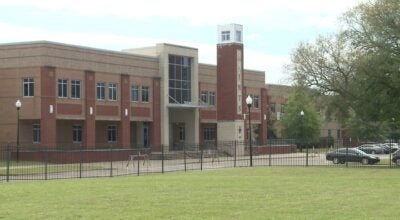Selma Interpretive Center closes for major construction
Published 10:16 am Tuesday, January 9, 2024

- The Selma Interpretive Center has closed until fall 2025.
|
Getting your Trinity Audio player ready...
|
By Staff Reports
On January 6, the Selma to Montgomery National Historic Trail’s interpretive center in Selma will close for construction on a project to expand the center’s footprint and provide a state-of-the-art visitor experience with a focus on educational programming, accessibility, and community engagement. The Selma Interpretive Center will remain closed to the public until the project’s completion, which is expected by fall 2025.
“This construction project marks a critical step forward for the trail,” said Barbara Tagger, acting superintendent, Selma to Montgomery National Historic Trail. “Once completed, the expanded Selma Interpretive Center will provide a premiere experience for visitors to more fully discover the history of the Voting Rights Movement, while also supporting the local economy.”
The construction project includes expansion into the immediately adjacent buildings, along with major site improvements. Historical facades at 8-10 Broad St. will be retained and preserved as part of the historic streetscape where marchers trekked in 1965. This project will build resiliency, enhance the visitor experience and improve the park’s ability to maintain the facilities.
While planning for construction, the National Park Service actively engaged communities and stakeholders in a series of public meetings to help inform the project’s plans and design.
The trail’s Lowndes and Montgomery interpretive centers will remain open during the Selma construction project.
Established in 1996, the Selma to Montgomery National Historic Trail commemorates, interprets, and preserves the important stories of the Selma voting rights movement and the routes of the Selma to Montgomery voting rights marches of 1965. The 1965 Selma to Montgomery voting rights marches are recognized as pivotal events among the campaigns for human rights in the United States. Together, the movement and marches were critical catalysts to the passage of the Voting Rights Act of 1965. Today the Selma to Montgomery National Historic Trail serves as an enduring testament to the continued struggle to preserve the right to vote as a fundamental cornerstone of American democracy.
Project updates, along with various opportunities for visitor contact in Selma will be posted to the park’s website at www.nps.gov/semo and @SelmaToMontgomeryNationalHistoricTrail on Facebook.





